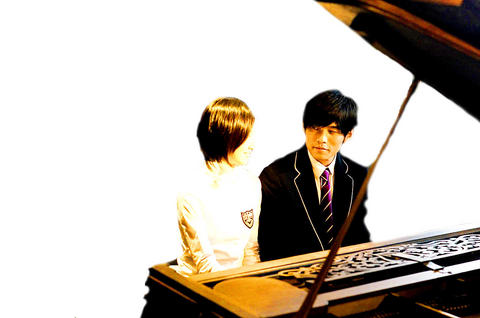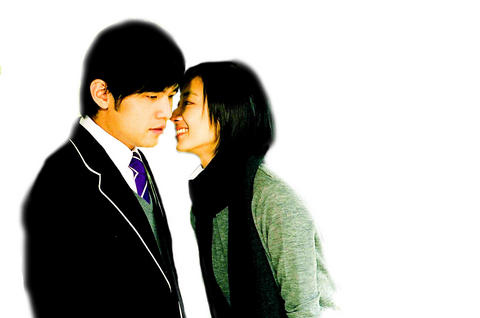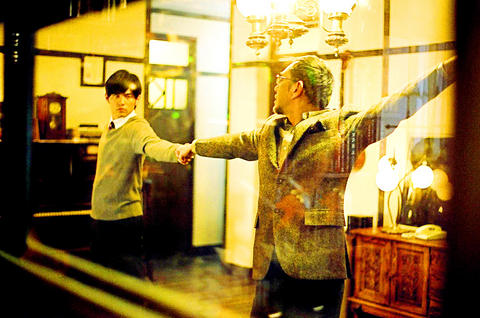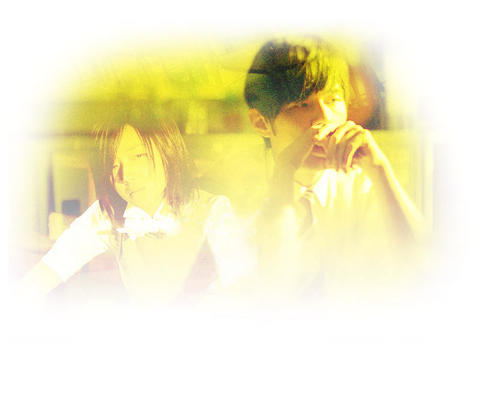Indisputably one of Mando-pop's biggest stars, Jay Chou's (周杰倫) previous forays into film were greeted with derision. His expressionless performances in Initial D (頭文字D) and Zhang Yimou's (張藝謀) Curse of the Golden Flower (滿城盡帶黃金甲) impressed few. With only a few music video-directing credits to his name, the 28-year-old pop star has made a daring move with his directorial debut Secret (不能說的祕密). The film turns out to be a surprisingly well-produced movie about puppy love that is guaranteed to be a hit with Chou's fans, high schoolers and like-minded grown-ups who have a taste for sugarcoated romance with a creative twist.
Chou stars as himself in the movie, a music major at Tamkang Secondary School (Chou's alma mater). On the first day of school, he is drawn to an old music room by a mysterious piano tune and meets Rain (played by Guey Lun-mei, 桂綸鎂), a fellow student with whom he grows romantically attached and with whom he shares many moments of affection.
A bright and enigmatic girl who attends classes only sporadically, Rain disappears from Jay's life one day without warning. The schoolboy's investigation leads to a trip down memory lane for his music teacher father (played by Anthony Wong).

PHOTOS: COURTESY OF SONY PICTURES
A secret is revealed and it's up to Jay to make a decision that will change everyone's life forever.
Credited as co-writer, director and actor for the movie, with help from internationally acclaimed cinematographer Lee Pin-bing (李屏賓), Chou should also be credited with creating a well-crafted story, smooth editing and an atmospheric production design that takes audiences into a fairy tale world of red-brick Japanese colonial architecture and beautiful boys and girls in British boarding school-style uniforms.
For sappy romantic movie fans, the first two-thirds of the film is a review of universalistic plot cliches: hanging out at a record store; bicycle rides beside fields; dancing; kissing; and lovey-dovey banter. All this soppiness could be seen as an innocent portrait of young love, but it may simply give members of the audience goose bumps.

The romantic story line is sometimes stretched too far and eats up most of the screen time leaving little space for full realization of the plot, which would be necessary for keeping viewers engaged and fascinated by the film's smart twist.
As the lead in his own movie, Chou is not in danger of being overshadowed by giants like Chow Yun-fat (周潤發) and Gong Li (鞏俐). He manages to show off the progress he has made in acting in the dramatic scenes with the well cast Guey, though the star's signature laconic drawl is still very evident. He also has a chance to show off his considerable musical talents in a piano duel scene that recalls the memorable scene in The Legend of 1900 starring Tim Roth.
The enjoyable on-screen chemistry between Chou and his cinematic father, Wong, creates quite a few gratifying and comic moments as the talented Hong Kong actor manages to play a supporting role without hogging all the attention. Though predictable and formulaic, the comic relief from the indispensable sidekicks played by members of Chou's pet project Nan Quan Mama (南拳媽媽) does work well most of the time in this secondary school-type love story.

Puporting to be nothing more than a puppy-love story, Secret proves to be a competent debut effort of a bright and resourceful star who understands the art of restraint well enough to hand in a neatly produced work.


Aug. 4 to Aug. 10 When Coca-Cola finally pushed its way into Taiwan’s market in 1968, it allegedly vowed to wipe out its major domestic rival Hey Song within five years. But Hey Song, which began as a manual operation in a family cow shed in 1925, had proven its resilience, surviving numerous setbacks — including the loss of autonomy and nearly all its assets due to the Japanese colonial government’s wartime economic policy. By the 1960s, Hey Song had risen to the top of Taiwan’s beverage industry. This success was driven not only by president Chang Wen-chi’s

Last week, on the heels of the recall election that turned out so badly for Taiwan, came the news that US President Donald Trump had blocked the transit of President William Lai (賴清德) through the US on his way to Latin America. A few days later the international media reported that in June a scheduled visit by Minister of National Defense Wellington Koo (顧立雄) for high level meetings was canceled by the US after China’s President Xi Jinping (習近平) asked Trump to curb US engagement with Taiwan during a June phone call. The cancellation of Lai’s transit was a gaudy

From Godzilla’s fiery atomic breath to post-apocalyptic anime and harrowing depictions of radiation sickness, the influence of the nuclear bombings of Hiroshima and Nagasaki runs deep in Japanese popular culture. In the 80 years since the World War II attacks, stories of destruction and mutation have been fused with fears around natural disasters and, more recently, the Fukushima crisis. Classic manga and anime series Astro Boy is called “Mighty Atom” in Japanese, while city-leveling explosions loom large in other titles such as Akira, Neon Genesis Evangelion and Attack on Titan. “Living through tremendous pain” and overcoming trauma is a recurrent theme in Japan’s

As last month dawned, the Democratic Progressive Party (DPP) was in a good position. The recall campaigns had strong momentum, polling showed many Chinese Nationalist Party (KMT) lawmakers at risk of recall and even the KMT was bracing for losing seats while facing a tsunami of voter fraud investigations. Polling pointed to some of the recalls being a lock for victory. Though in most districts the majority was against recalling their lawmaker, among voters “definitely” planning to vote, there were double-digit margins in favor of recall in at least five districts, with three districts near or above 20 percent in